Picture this: you are launching your own application. However, devs have cut corners and the app is riddled with bugs that frustrate users and damage your reputation. That's why hiring a software testing company for thorough testing is like a fire drill for your digital product — it exposes vulnerabilities before they cause real flames.
The proof is the Equifax data breach of 2017 — a massive security failure has driven the leak of the personal information of over 147 million Americans. This catastrophic event was largely attributed to inadequate testing, costing Equifax over USD 1.4 billion in fines and legal fees.
Businesses today face immense pressure to deliver high-quality, secure, and user-friendly digital experiences. However, finding the right software testing partner can be a daunting task. Many mix up types of software testing services, many just don’t know what to look for in a software testing partner. With so many testing companies out there, it's challenging to identify the one that truly understands your unique needs and can deliver the results you require.
Further, we will walk you through the key factors to consider when selecting a software testing company — to make an informed decision that protects your business.
Key factors to consider when choosing a testing company
Many know that the software testing company selection process must be careful. But less know that it also should be cohesive and be conducted from different angles. We listed practical tips and considerations for evaluating your options effectively. Before an RFP for software testing services, run through these steps to ensure your testing partner meets your specific needs and helps you achieve your business goals.
Testing needs: Clarify your perspective
Immerse yourself in types of software testing services and figure out what types of testing you need.
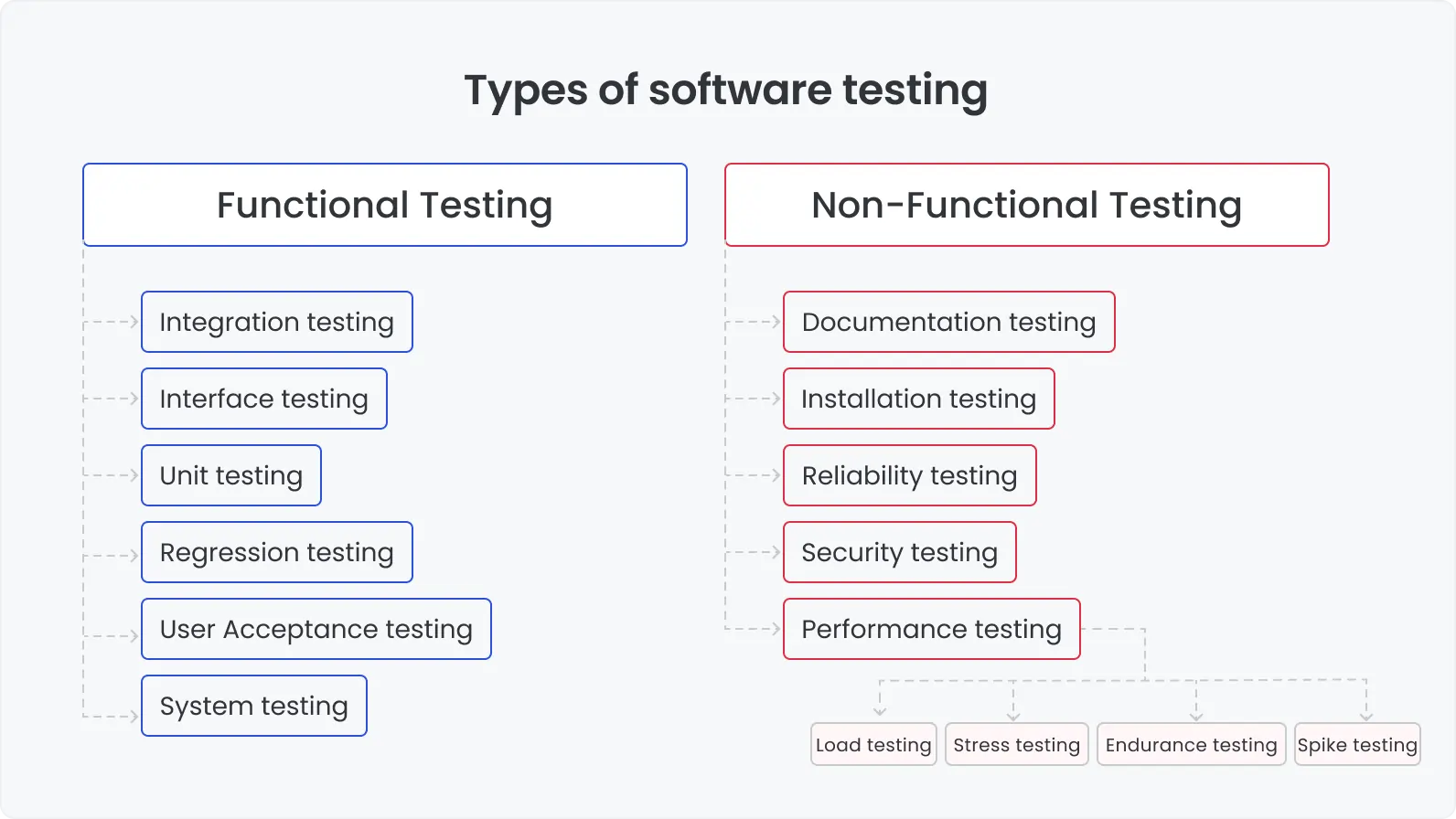
Identify the testing types: Functional testing ensures core functionalities work as intended. Performance testing identifies bottlenecks and optimizes speed. Or maybe you need security testing to safeguard sensitive data? Chances are you need it all. Understanding the types of testing required (mentioned above and that were left out) will help you narrow down potential partners.
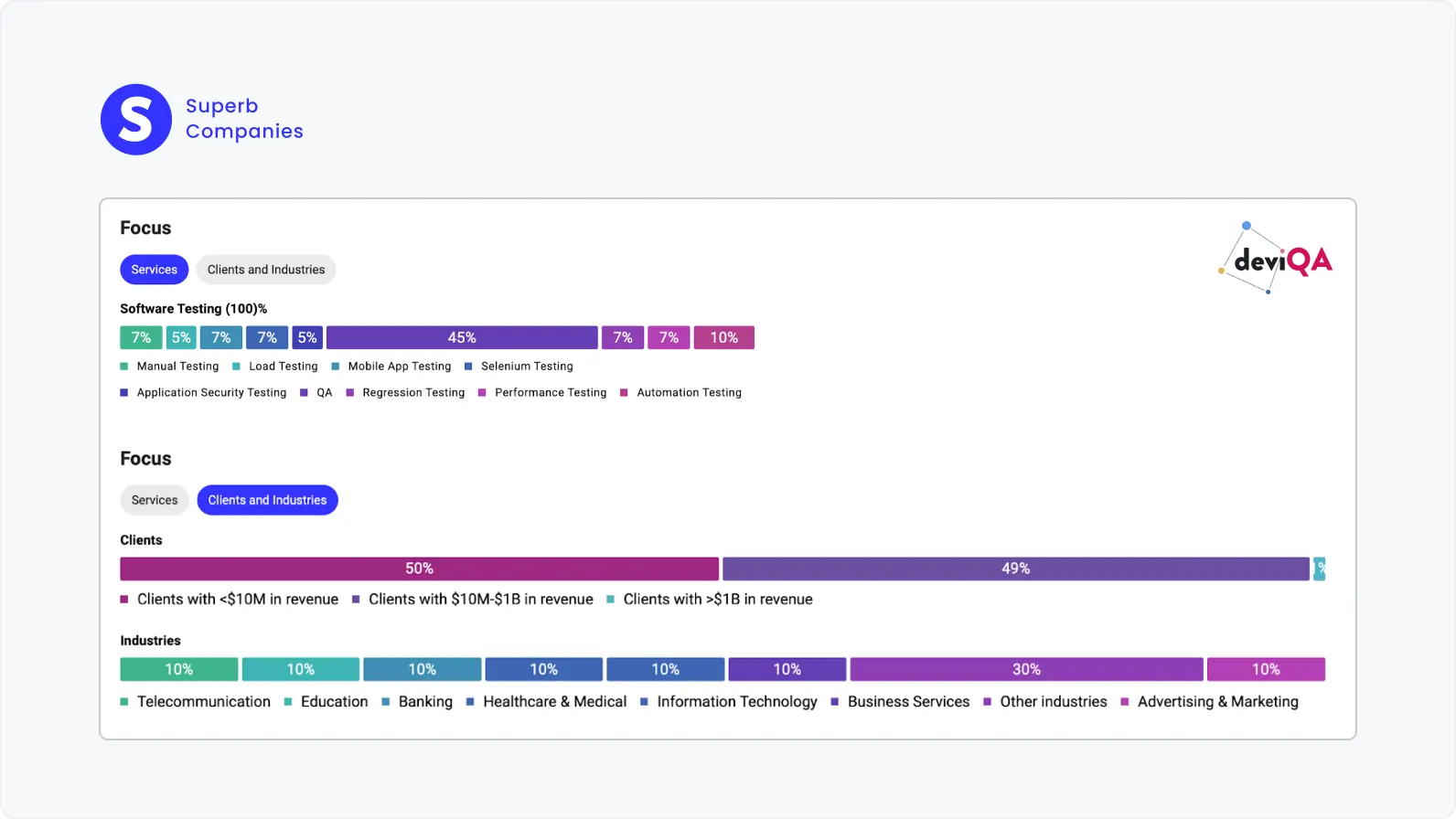
Industry regulations: Does your industry have specific compliance requirements? Fintech and healthcare industries have some of the strictest regulations. Healthcare apps in particular need to adhere to HIPAA regulations. Ensure the testing company has experience navigating these industry-specific hurdles.
In-house vs. outsourcing: Evaluate if you have the resources for an in-house testing team or if outsourcing is a better fit. Consider factors like cost, scalability, and access to specialized expertise when making this decision.
Book a call to ensure software works the way you imagined and deliver exceptional quality before your rivals
Check experience and expertise
The most generic yet important advice: look for a company with a solid track record in your industry. They should have proven experience with the specific types of testing you need. Take advantage of consulting with their previous clients because the case study page may not contain everything you want to know about.
However, review it and success stories too. This will give you more confidence in their ability to meet your requirements. What exactly do you pay attention to?
Industry knowledge is king: Partner’s familiarity with industry best practices and potential pitfalls will be invaluable assets — look for them on the website, “assessing portals” like SuperbCompanies, and in personal meetings.
Testing expertise: How does your potential partner cover your unique business/testing needs? Whether it's automation expertise, security testing certifications, or experience with a particular testing framework, ensure their skillset aligns with your vision and inquiry. Maybe they have proven and reputable certifications? Find out if possible.
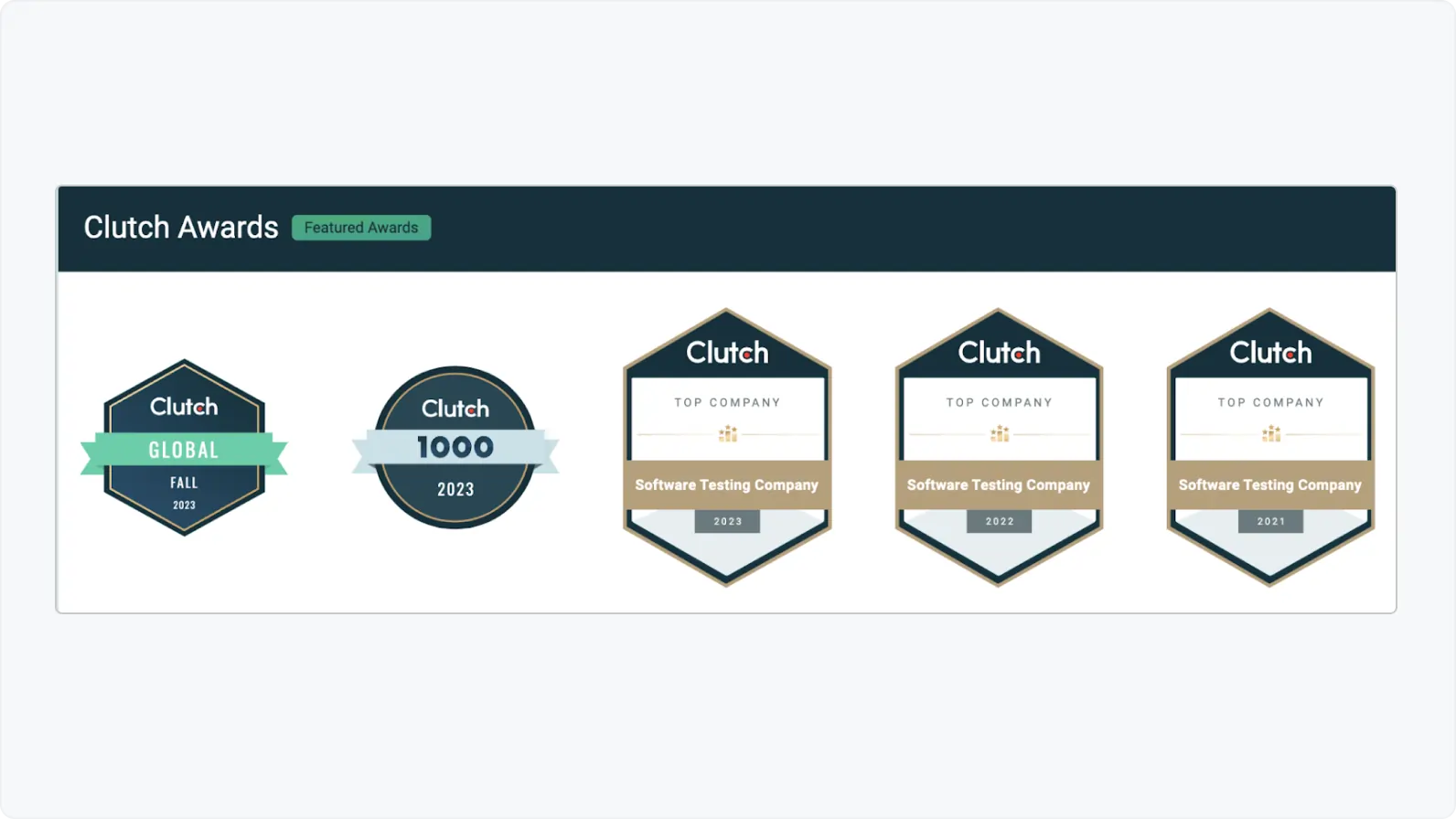
Learning from success stories: The company's case studies and success stories may say many interesting things. But the stories mirroring your project's goals and industry are better. This can provide valuable insights into their approach and problem-solving skills.
Investigate reputation and references
A company's reputation can speak volumes about the quality of its services. Conduct thorough research by reading online reviews (Clutch, SuperbCompanies, Glassdoor, GoodFirms, etc.), testimonials, and industry awards or recognitions the testing company has received. This will give you a good sense of their reliability, customer satisfaction, and overall standing in the market.
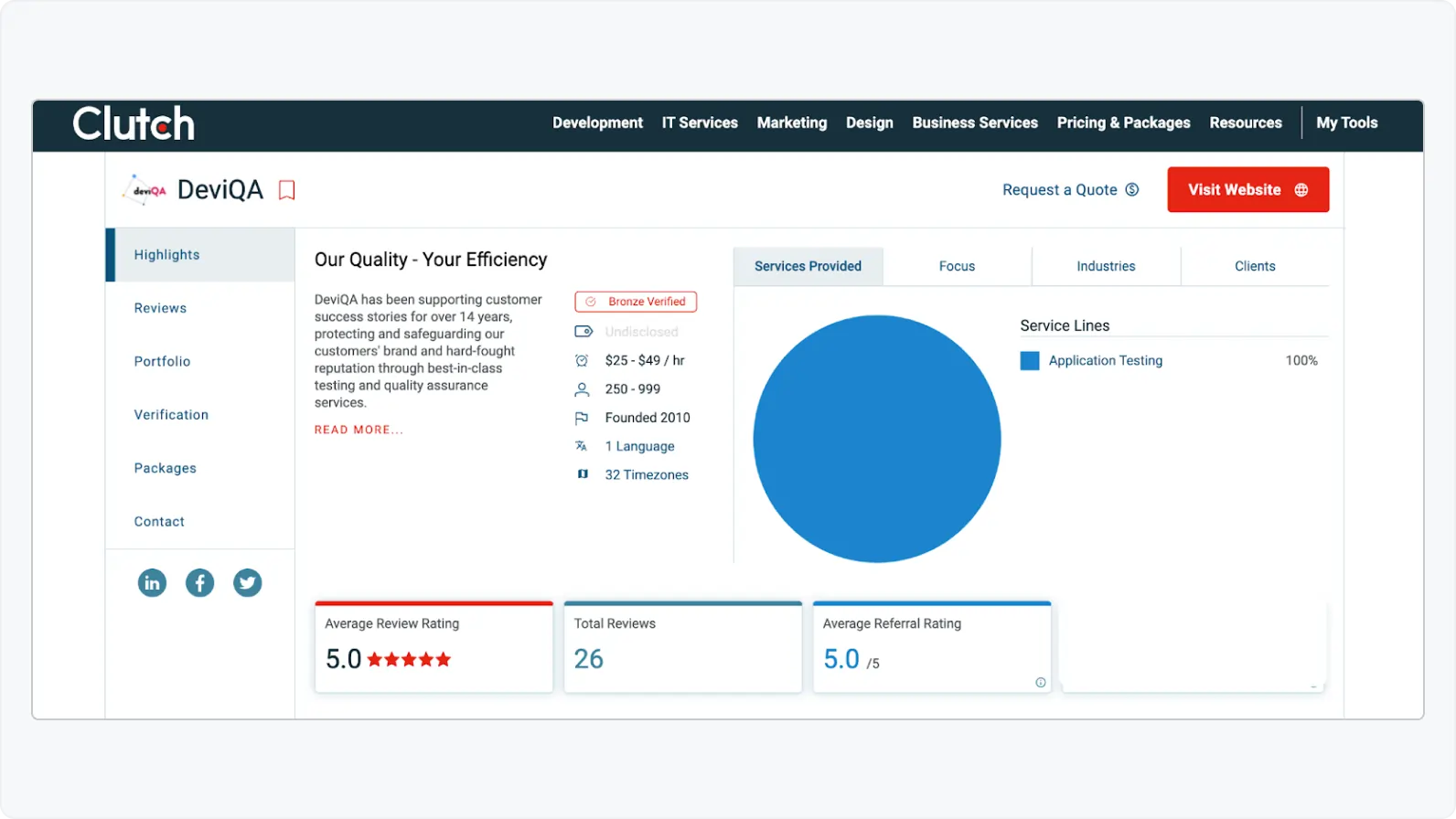
Also, you have two ways on the reference check matter. Either ask the testing companies for client references and contact them directly or just find their previous clients on the mentioned platforms (like SuperbCompanies) and reach out to them.
This way you will understand the company's strengths and weaknesses and how it handles challenges that may arise during the testing process.
Assess technical skills and tools
Ensure that the testing company you choose uses up-to-date technologies and methodologies. Capgemini and Sogeti surveyed top organizations and found that 55% of them consider the adoption of new testing tools and technologies one of their top priorities.
Important note: The company of your choice should be proficient in both manual and automated testing, as both approaches are necessary for comprehensive software evaluation. Manual testing for exploratory and usability testing, where human intuition is crucial, and automated testing for repetitive and regression testing tasks, ensuring speed and consistency.
Also, check for professional training. Certifications such as ISTQB (International Software Testing Qualifications Board) indicate a standardized level of knowledge and expertise. Continuous professional development and training reflect a commitment to staying current with industry trends and best practices. Ask potential partners about their training programs and how they ensure their team’s skills remain sharp.
Pitfall to avoid: While it’s important to keep up with modern technologies and tools, it’s also important to be careful as new must not be better. The allure of the latest, greatest tool can be tempting and sometimes harmful. The purpose and consciousness are key.
Examine communication and collaboration
Evaluate the company’s communication skills and responsiveness. Clear and prompt communication helps quickly address issues and avoid misunderstandings. Comprehend their project management processes and reporting practices. Frequent and transparent reporting keeps you informed about progress and any potential roadblocks.
Project Management Institute found that organizations with effective communication practices are 1.7 times more likely to complete projects successfully.
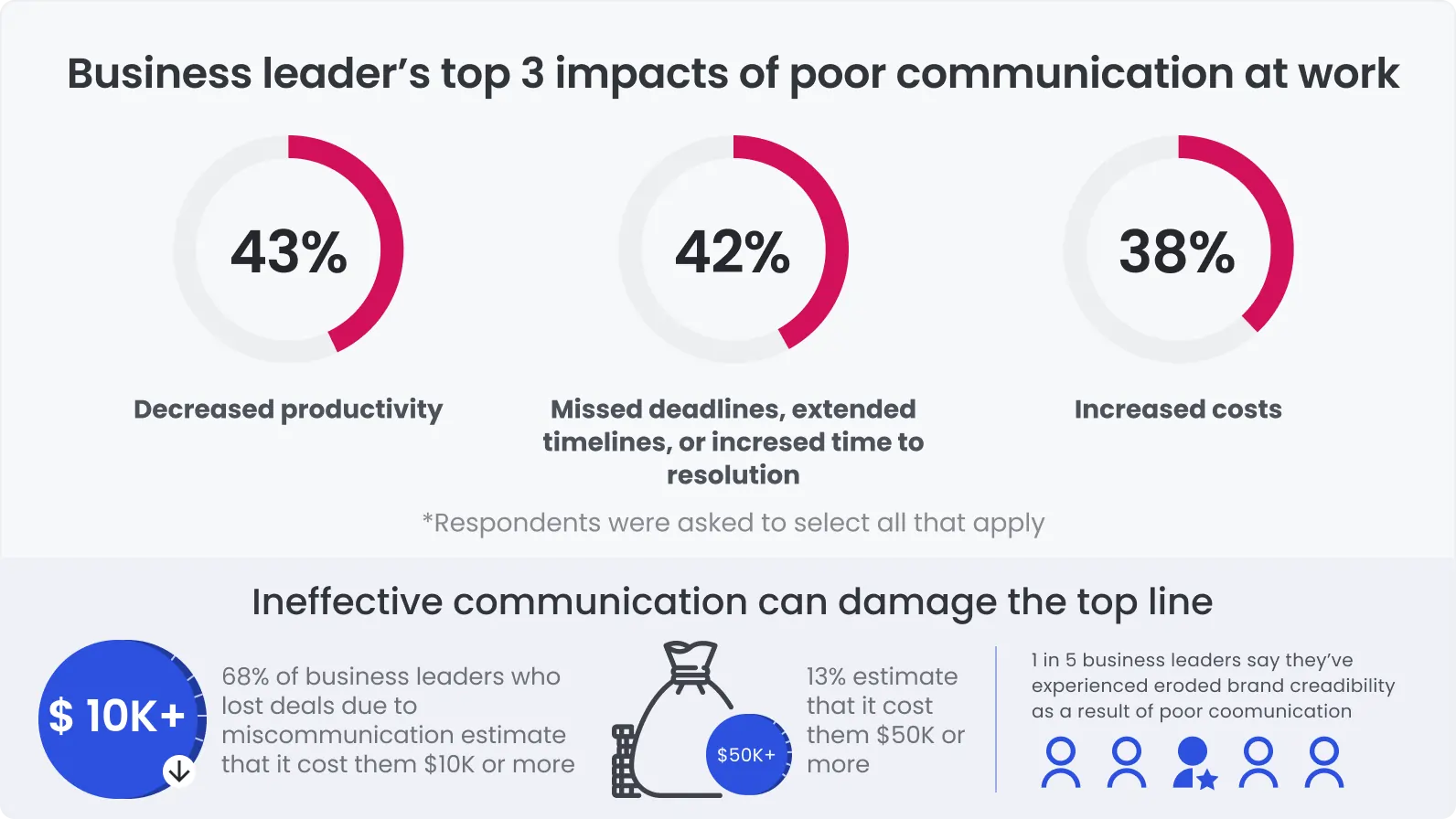
If you are outsourcing offshore, consider time zone differences and language proficiency. Time zone differences can affect communication and collaboration, so ensure that the company has strategies in place to manage these challenges effectively. Language proficiency is equally important to ensure clear communication. A company with high-level-English employees can save time and prevent errors arising from miscommunication.
Compare cost and flexibility
Cost of software testing services is a significant factor, but it should not be the only consideration. Analyze different pricing models: fixed price, time and material, and others. A fixed price model provides predictability, while a time and material model offers flexibility, allowing you to pay for actual hours worked.
An already mentioned study by the Project Management Institute found that 43% of projects exceed their original budget. So, your partner should be fast on the uptake and scale the team up or down based on your needs promptly. It’s crucial with the project’s changes over time.
The most reliable sign of a solid partner is transparency in pricing and potential additional costs. Hidden costs can disrupt your budget (and partner’s reputation, by the way), so it’s important to have a clear understanding of all potential expenses. Discuss any possible additional costs “ashore” and include them in your contract to avoid surprises later.
Detail their methodologies and processes
Shared vision and software/tools, in particular, help to evolve faster. Agile and DevOps are top-of-mind choices for most modern companies as they offer flexibility and integration capabilities.
An average testing company utilizing Agile methodologies can quickly adapt to changes, ensuring that testing keeps pace with development. Another crucial point for double-checking is the partner’s processes for defect tracking, test management, and reporting: Jira for defect tracking and TestRail for test management are industry standards.
Make sure the software testing provider follows industry best practices and standards. We already mentioned ISTQB (International Software Testing Qualifications Board) which ensures quality and consistency in testing processes.
Understanding an outsourcing partner’s methodologies and processes will give you insight into how they handle your project, and this is one of the most important indicators of their working culture.
Check their security and confidentiality measures
Data security is non-negotiable. Really. Media is publishing breaking news nonstop: the other day, Australian ticket seller TEG experienced another one resulting in the 30M users' records loss.
So, ensure the testing provider has robust security measures in place to protect your data: data transfer protocols, encryption, and strict access controls. Verify their compliance with relevant data protection regulations like GDPR or HIPAA. For instance, a company that handles healthcare software should comply with HIPAA to ensure patient data protection.
This is not a joke. Cybersecurity Ventures stated, “The global annual cost of cybercrime is predicted to reach USD 9.5 trillion in 2024”.
To be on the safe side, also review policies on confidentiality and non-disclosure agreements (NDAs). On the one hand, the NDA protects your intellectual property and sensitive information from being disclosed. On the other, you keep your brand safe and sound in case of any missteps of the testing partner.
Make sure the company has clear policies and is willing to sign an NDA. Sometimes, cooperation without NDA can serve as an amplifier for your brand. Anyway, this step is crucial to protecting your business’s proprietary information and maintaining confidentiality.
Request proposals and conduct interviews
Let’s say you already have a shortlist of potential providers — it’s time to request detailed proposals. They should outline their approach to your project, including methodologies, tools, timelines, and cost estimates.
Yet, a well-crafted one should go beyond just listing the testing company's services and capabilities. Any materials should demonstrate a deep understanding of your specific requirements and a tailored approach to addressing them.
Pay close attention to the level of detail provided in the proposal. A superficial or generic one may be a red flag, indicating a lack of your needs investigation.
A word on interviews
In-person or online interviews with the testing companies help to dive deeper into their bids and assess their fit for your project. List your questions. Some ideas to this end:
How do you plan to address our specific testing needs?
What challenges do you foresee, and how will you overcome them?
Can you provide examples of similar projects you've successfully completed?
How will you ensure effective communication and collaboration with our team?
The proposal should also provide detailed information about the team that will be assigned to your project, including their relevant experience, certifications, and roles. A well-balanced team with a mix of senior-level experts and junior-level resources will ensure a combination of deep expertise and cost-effectiveness. Steer clear of proposals that lack specifics about the team or rely heavily on subcontractors or offshore resources without a clear plan for managing quality and communication.
Make the final decision
Now, it’s time for the final call.
Recap: Review your notes and revisit the key factors outlined throughout this guide (expertise, communication, cost, etc.).
Negotiate: Don't be afraid to negotiate pricing and terms within reason. A reputable company will be transparent about costs and willing to work collaboratively to reach a mutually beneficial agreement.
Seek clarity: Ensure the final contract clearly outlines the scope of work, deliverables, timelines, and payment terms. Don't hesitate to seek legal counsel if needed to review the contract before signing.
Long-term partnership makes a difference. When you can count on a robust and flexible partner, you will be able to turn the mountain.
To sum it up
Employing outsourced software testing services is crucial for your business's success. Recall the 2015 Volkswagen emissions scandal, where among other oversight inadequate testing led to massive financial and reputational damage (they lost at least EUR 2.5B).
Another example is Facebook, which faced a massive data breach in 2018 that exposed the personal information of 30 to 50 million users. Mostly attributed to security measures, this accident cost the company over USD 3B in fines and legal fees.
To avoid such disastrous failures, the software testing company selection process must be carefully aligned with your testing needs; additionally, you should thoroughly evaluate potential providers and focus on building a long-term, collaborative relationship with your chosen testing partner.
Take your time and conduct thorough research when selecting a testing provider. Zero in on their experience, methodologies, technical skills, and reputation. If your specific needs share one side with them, such collaboration can prevent costly mistakes and enhance your software’s performance and security.
The DeviQA team understands the complexities of software testing and offers expert services tailored to your business requirements. We go the extra mile in investigating client’s unique needs. We believe this is the only way the service will strike a chord and make a difference. Contact us for further assistance or consultation and let us help you safeguard your software.
Book a call to free up 20% of your development budget, investing in features, not repetitive tasks



